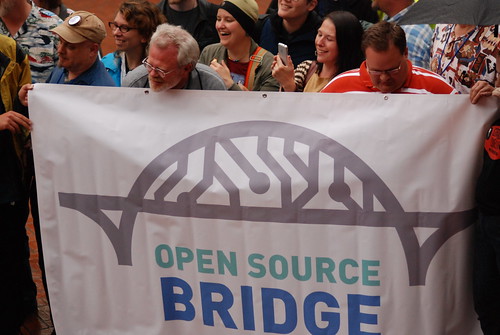Back in July, someone claiming to be a “Mozilla member” made threatening comments here on my blog, directed towards myself and my colleague Tim Chevalier. I reported the comments immediately to Mozilla HR. It look nearly three months, but I can now report a resolution.
The person who left the comments is a Mozilla employee. They have been contacted by Mozilla HR and directed not to make these kind of comments to Mozilla employees or community members in the future, or else face disciplinary action. They have also issued an apology to me personally. Unfortunately, the person has declined to provide a public apology and isn’t being compelled to do so.
I find the lack of a public apology disappointing and a detriment to the Mozilla community. Those who violate community conduct standards should face the consequences of their actions and they should have to face them publicly.
Why? Many reasons. Without having to face consequences, abusive behavior is likely to continue, and likely to escalate. When those who violate conduct standards are held publicly accountable for their actions, it gives those who might have been a target of such behavior in the past a chance to finally speak up. And, it demonstrates that the Mozilla community takes its employees’ and contributors’ conduct toward one another seriously and doesn’t tolerate abuse. A public apology gives those who transgress an opportunity to make amends with the community.
In the case of the person who left the threats on my blog, their desire not to look bad is being placed above our (mine, Tim’s and others from marginalized groups) need to feel safe, and thus represents a refusal to acknowledge their deleterious effect on our entire community.
The commenter’s actions harmed not just the two of us who were the direct targets, but the Mozilla community as a whole by setting the example that if a queer person feels they are being discriminated against at Mozilla and speaks out about it, they will be penalized with a public threat. Why was the original comment a threat? Because saying “we don’t want you two around” implies that they would do their best, either directly or indirectly, to make sure Tim and I were not able to continue to be around. Furthermore, their use of “we” created anxiety that there was not just one, but many people at Mozilla who wanted to force out people who speak out against discrimination.
More generally, the commenter’s actions set a precedent that if somebody is in a vulnerable minority group, they must choose between being silent and accepting what they experience as discriminatory treatment or risk being humiliated and threatened if they speak out against it. Being in a situation where the only choices are to accept abuse without criticizing it or be retaliated against for speaking up, is unfair. A community where people in minority groups are treated unfairly is one that many such people will either leave, or not join in the first place, because they don’t feel welcome. And driving away people in minority groups hurts the community. It deprives the community of all that minority group members can contribute, and means Mozilla won’t have the best employees and contributors it can possibly have.
In the lack of acknowledgment that the commenter’s actions harmed the community, I hear unwillingness to say that Mozilla values its contributors who are queer. If harming us does not harm the community, then the only logical conclusion is that we’re not an important part of the community. It’s hurtful to see that the facts apparently point to this conclusion.
While it’s true that I could reveal the identity of the anonymous commenter, I don’t feel comfortable doing so publicly, here on my blog because I fear a lack of support from the Mozilla community. On the one hand, many of you expressed your outrage and disapproval of the commenter’s behavior, but on the other hand, some of you also expressed doubt that the commenter could even be part of the Mozilla community. Also, I have not seen a lot of outspoken support for those who speak up on these issues, and have certainly experienced a lack of institutional support on behalf of Mozilla leadership.
What I will do is encourage those of you who have been the target of threatening behavior, even if it seems insignificant, to document and report it.
Update 3 October 19:45 PDT: Read Harassment, Accountability, and Justice for Tim’s response to this issue.







